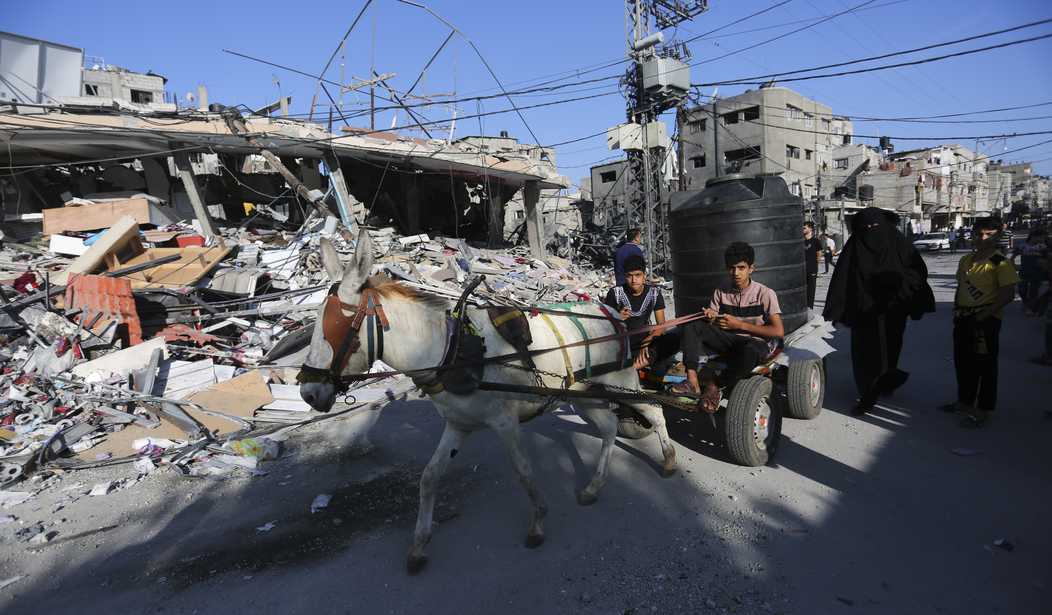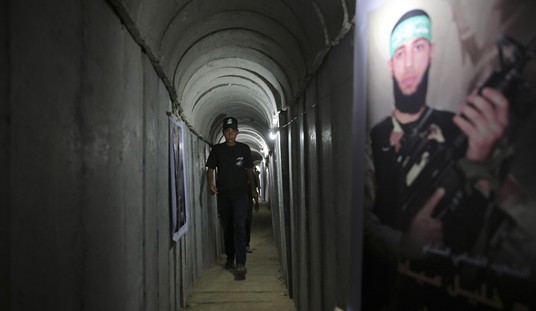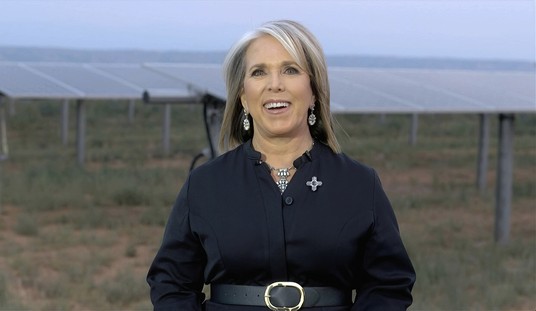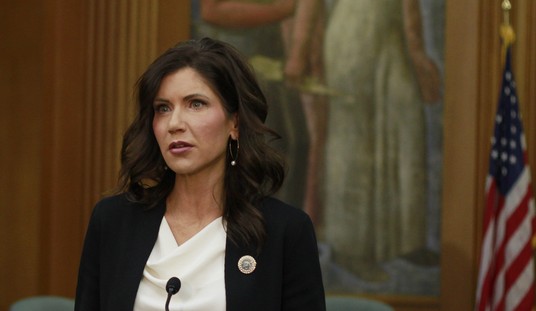An interesting story appeared in Politico late Monday, a day after Israeli Prime Minister Benjamin Netanyahu told President Joe Biden where he could stick his "red line." The report cites anonymous administration sources who say that Biden "will consider conditioning military aid to Israel if the country moves forward with a large-scale invasion of Rafah." The interesting part wasn't the potential conditioning of military aid post-invasion; it was the reported demand by the Biden administration for Israel's detailed "credible and implementable" plans for the safety of Palestinian civilians in Rafah both pre-invasion and during the conflict.
RELATED: Netanyahu Reveals His Own 'Red Line' in Dealing With Hamas, Says 'Victory Is Within Reach'
Before mentioning the demand, the Politico writers made sure to set the stage with the talking points the anonymous sources undoubtedly wanted out in the wild.
Biden’s openness to taking this step [conditioning] reflects the extreme strains in his relationship with Israeli Prime Minister Benjamin Netanyahu, who has rejected subtler efforts by the Biden administration to rein in his conduct of the war with Hamas.
Rein in his conduct of the war with Hamas? As Netanyahu said during his weekend interview with BILD, any country attacked the way Israel was by Hamas, whose women and children were raped and murdered in an ambush attack, would harshly retaliate - and probably with much more ruthlessness than Israel has. Since October 7 Hamas has used hospitals as military bases, used civilians as human shields, lied with impunity about civilian casualty numbers, and continued their practice of seizing any humanitarian aid for its own ends - and the mainstream media and members of Biden's administration hide the truth of what's happening.
In light of all of that, and the latest reports that the Biden administration is attempting regime change in Israel, it's no wonder that Biden's relationship with Netanyahu is "strained."
There's no doubt Biden is miffed at Netanyahu for not doing exactly what Biden wants him to (as evidenced by that hot mic moment last week), but Biden's also been clear that cutting off military aid to Israel isn't something he's considering. And, despite Politico's headline and opening paragraph, the quote from an unnamed official isn't specific about Rafah or much of anything else.
While Biden has not made any decision on limiting future weapons transfers, officials said that he very well might do so if Israel launches a new operation that further imperils Palestinian civilians.
“It’s something he’s definitely thought about,” said one of the officials, who like the others, was granted anonymity to speak freely.
Well, sure, any decent Commander in Chief (and I'm not saying Biden fits that description) should definitely think about lots of scenarios and possibilities when it comes to conflicts around the world involving our allies and our military support.
And who are these officials that Politico spoke to? They're described only as "four U.S. officials with knowledge of internal administration thinking." Are they in the White House? Department of Defense? State? One of the intelligence agencies?
Spokespeople for the National Security Council and the White House shot down the speculation and termed "red line" terminology as unproductive, given the "very complex set of policies."
National Security Council spokesperson Adrienne Watson said in a statement to POLITICO that “we are not going to comment on speculation by anonymous sources or add to what the president said this weekend.”
But asked about Biden’s willingness to tie aid to future Israeli actions, White House deputy press secretary Olivia Dalton said “he thinks that there are other approaches which we have taken and are taking that are more effective.”
“I don’t think that it’s productive to assign a ‘red line’ sort of terminology to what is a very complex set of policies,” she told reporters aboard Air Force One. “You’ve seen the president be very vocal and forthright about what we think about the situation on the ground and what needs to happen from here.”
As experts cited by Politico noted, Israel is already using "lower-intensity, more-precise military operations, including going into the tunnels to kill or capture Hamas militants." At some point, those operations will have eradicated every part of Hamas they possibly can, and it will be necessary for Israel to actually enter Rafah. So do these anonymous sources think that should never happen?
Likely. However, it seems that what's really happening, and why suddenly we're seeing Rafah all over the news, is that Israel is dragging its feet when it comes to sharing its plans for the area with the U.S.
Israel still has not shared a “credible and implementable” plan to protect civilians in Rafah with the Biden administration, a fifth U.S. official confirmed. The U.S. wants to see one before it gives an implicit green light to Israel’s advance.
Why does Israel need to share this plan, and why do they need an implicit green light from us? If Israel shares a "credible and implementable" plan to protect civilians in Rafah before and during the offensive with the Biden administration, then they're also essentially sharing their battle plan. Once the Biden administration has those plans, people like high-ranking DOD official Ariane Tabatabai, believed to be an Iranian asset, and others like her can share them with Iran, Hamas, and Hezbollah. If Netanyahu isn't sharing the plan to protect civilians with the U.S., it's with good reason.
UPDATE 3/12/24, 8:45 PM Eastern: On Tuesday, National Security Adviser Jake Sullivan called the Politico story referenced above and other similar stories 'uniformed speculation in anonymous officials" and told reporters that, “Our position is that a military operation in Rafah that does not protect civilians, that cuts off the main arteries of humanitarian assistance and that places enormous pressure on the Israel-Egypt border is not something that he can support. We are talking to the Israelis about that. We are working through it.”















Join the conversation as a VIP Member